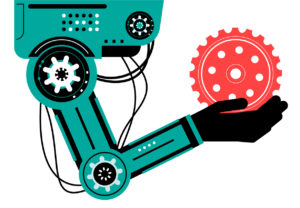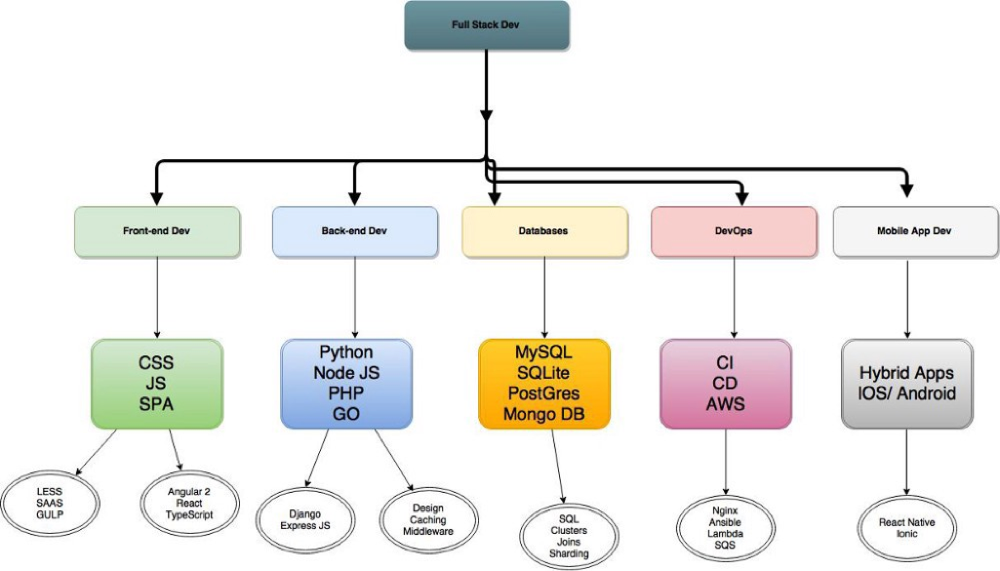Seven Technical Skills that Give
Engineering Graduates an Edge

Want to stand out from among your peers?
Here are six technical skills that make you uniquely qualified within the auto and engineering industries.

1. Understanding Manufacturing Processes
-
Recommended Resources
These E-learning Courses Provide an Overview of Basic Manufacturing Processes:
Massachusetts Institute of Technology (MIT): Fundamentals of Manufacturing Processes
Alison: Introduction to Manufacturing Processes
Here Are Some Massive Open Online (MOOC) Courses to Consider As Well:
https://www.mooc-list.com/tags/manufacturing-processes
Open University (UK): Manufacturing (no charge)
First and foremost, engineering graduates should understand manufacturing processes.
The basic manufacturing processes are:
- Casting
- Forging
- Moulding
- Forming
- Machining
- Joining
- Imaging and Coating
- Assembling
If you’ve studied mechanical or manufacturing engineering, then you already have the necessary background. However, if you are entering the manufacturing sector from a different background – say chemical engineering or computer engineering – you will need to pick up some additional knowledge.
2. Understanding Robotics
-
Recommended Resources
Robotics is more complicated than an Arduino model; these courses can help bridge the gap:
Stanford University Everywhere: Introduction to Robotics (E-Course)
Northwestern University :Modern Robotics, Course I – Foundations of Robot Motion (E-Course)
Robotic technology is central to manufacturing – understanding the principles of robotics is critical. Graduates with a mechanical or manufacturing engineering background will already understand these principles. If your major is in a different engineering field, you may need to upgrade your knowledge base.
 Robots are used for:
Robots are used for:
- Moving materials and components
- Shaping components (cutting, bending, etc.)
- Joining components (welding, applying adhesives, bolting)
- Assembling components
- Coating components
- Inspecting
The elements of a robot are:
- Sensors
- Actuators
- Controller
- Manipulator
- Locomotion (if the robot is not stationary)
3. Understanding Quality Control Systems.
-
Recommended Resources
If you search online, you can probably find a link to download a free copy of ISO 16949.
You might also be interested in taking these fee-based courses:
- https://bsi.learncentral.com/shop/Course.aspx?id=24532&name=IATF+16949:2016+Autoflicks:+An+introduction+to+the+revised+automotive+standard
- https://www.sgs.com/en/campaigns/iatf-16949-2016-automotive-qms-introduction-elearning
- https://www.tuv-sud-psb.sg/sg-en/activity/training-services/automotive-quality-management-system-1/iso-9001-2015-and-iatf-16949-2016-awareness
- http://www.aiag.org/quality/iatf16949
These ISO guides may also be useful:
Guides to ISO 16949: https://www.nqa.com/en-ca/resources/blog/june-2017/guide-to-iatf-16949
The Automotive IATF 16949:2016 Memory Jogger, by Jeremy Hazel
Kaoru Ishikawa’s, “Introduction to Quality Control”, is considered by many to be the authority for quality control. Originally written in Japanese, it is now available in English. Be warned, it’s a heavy read.
Industry engineers report that the single greatest skill shortage of recent engineering graduates is their limited understanding and experience with quality control systems. Quality control is integral to every manufacturing process. Even a basic knowledge of quality control systems will differentiate you.
Understanding quality control systems means understanding the principles of statistical process control. The most notable application of statistical process control is ‘six sigma’ which was applied throughout General Electric.
The auto industry recently adopted a common standard known as ISO 16949. Having some familiarity with ISO 16949 is a major asset when seeking an engineering job in the auto industry.
4. Programming Skills
-
Recommended Resources
There are a few courses offered at Coursera that offer a more detailed role of CAD in manufacturing, including courses on Autodesk and CAD and Digital Manufacturing Specialization: https://www.coursera.org/specializations/cad-design-digital-manufacturing
Given the importance of hydraulic equipment, knowledge of fluid mechanics is important – check out:
University of Minnesota’s Fundamentals of Fluid Power Course, offered at Coursera
AutoCAD and SolidWorks are industry standards for 3-D design. The programming of robots requires knowledge of AutoCAD.
3-D printing works directly from AutoCAD files. Most manufacturers of robots use proprietary software to program the equipment, although knowledge of Python or C/C++ provides a good base.
| Manufacturer | Language |
|---|---|
| ABB | RAPID |
| Comau | PDL2 |
| Fanuc | Karel |
| Kawasaki | AS |
| Kuka | KRL |
| Stäubli | VAL3 |
| Yaskawa | Inform |
“Full stack” refers to the collection of technologies needed to complete a project. A “stack” refers to a collection of sub-modules. A full stack developer is an engineer who is knowledgeable about all of the work of database design and management, including hardware requirements, network requirements, user needs, etc. The following graphic illustrates the components of a major design project and the related programming languages. The front-end of a design project is everything that the user interacts with directly. The back end is the database engine and connectivity systems that drive the application.
One major firm describes four levels of software engineering:
Full Stack Developers work on Application Program Interface (API) as well as the back end of the application. Full Stack Developers are responsible for the overall architecture of the application and the integration of its components as well as its integration with hardware and network systems. Key programming platforms include:
- Java
- Scala
- Angular JS
- Rub on Rails
- SQL
Firmware Developers write low-level or embedded code for IoT (internet of things) applications. The key platforms are: C or C++.
Data Science Engineers develop and refine algorithms for machine learning (artificial intelligence) and manage neural networks. They require both knowledge of software platforms and statistical theory. Key software platforms include:
- Python
- R (for statistics)
- C++
DevOps is a set of practices designed to overcome the problems of developing an application in silos. DevOps engineers work with all segments of a project team to ensure successful integration of components. Some companies view DevOps as a workplace culture. Other companies see DevOps as a specific set of skills.
5. Complementary Technical Skills
Employers value engineering graduates who have complementary engineering skills. Many technologies apply to more than one engineering discipline, there is some overlap. It makes sense that engineering graduates look for these synergies and consider opportunities beyond their particular field. For example, mechatronics combines electronics engineering and mechanical engineering, opening up possibilities for graduates of either discipline. Similarly, battery technology requires an understanding of both electrical engineering and chemical engineering skills. And, programming skills are beneficial to all engineering disciplines.
6.Project Management
-
Recommended Resources
You can find courses on project management at most colleges:
https://www.ontariocolleges.ca/en/programs/business-finance-and-administration/project-management
There are also some good e-courses available as well, including:
University of California’s Project Management: The Basics for Success Course, available at Coursera
Wharton Business School, University of Pennsylvania’s Wharton Business School’s course on Improving Communications Skills, available at Coursera
You can also find courses on project management through the continuing education programs offered by OSPE and many universities, including:
-
- University of Toronto School of Continuing Studies: https://www.ontariocolleges.ca/en/programs/business-finance-and-administration/project-management
- McMaster University, Centre for Continuing Education: https://www.mcmastercce.ca/project-management
- Ryerson University, Chang School for Continuing Education: https://ce-online.ryerson.ca/ce/default.aspx?id=2514
- Western University, Continuing Studies: https://wcs.uwo.ca/public/category/courseCategoryCertificateProfile.do?method=load&certificateId=22431
- Carleton University – Sprott School of Business
-
Project management skills are in demand in every industry. The premier qualification is certification from the Project Management Institute (PMI), including:
- Project Management Professional (PMP)
- PMI Agile Certified Practitioner (PMP-ACP)
- Certified Associate in Project Management (CAPM)
Project management qualifications open career doors and accelerate career advancement.
7. Basic Accounting and Finance
-
Recommended Resources
YouTube offers many short videos providing a good introduction to the basis of financial and management accounting.
Search YouTube for the following terms, Ed Spira’s videos are particularly good:
- Introduction to Accounting
- Introduction to Managerial Accounting
- Introduction to Accounting and Feasibility Analysis
Key concepts in feasibility analysis are net present value (NPV) and internal rate of return (IRR). Both of these can be computed in Excel. You need to understand these measures and how to develop them.
Search YouTube for the following terms – Ed Spira offers some good content in these subjects as well:
- Capital Budgeting in Excel
- Net Present Value
- Internal Rate of Return
- NPV vs IRR
- Feasibility Study
More advanced courses include:
- Rice University’s Finance for Non-Financial Professionals Course, available at Coursera
- University of Pennsylvania’s Introduction to Financial Accounting Course, available at Coursera
- University of Virginia’s Managerial Accounting Fundamentals Course, available at Coursera
Accounting is the “language of business”. There are three types of accounting and financial analysis:
Financial accounting consists of the reports that managers generate to provide external parties with a summary of the firm’s financial position and operations. When the term ‘accounting’ is used, it usually means financial accounting.
Managerial accounting (sometimes called ‘cost accounting’) focuses on the information and the analytical tools that help managers and employees make the right business decisions.
Feasibility analysis provides a cost-benefit of an operation or a payback analysis of a proposed investment.
Visit the Technologies section of this website to learn more about the technical skills required in a number of disciplines within the automotive and transit.


